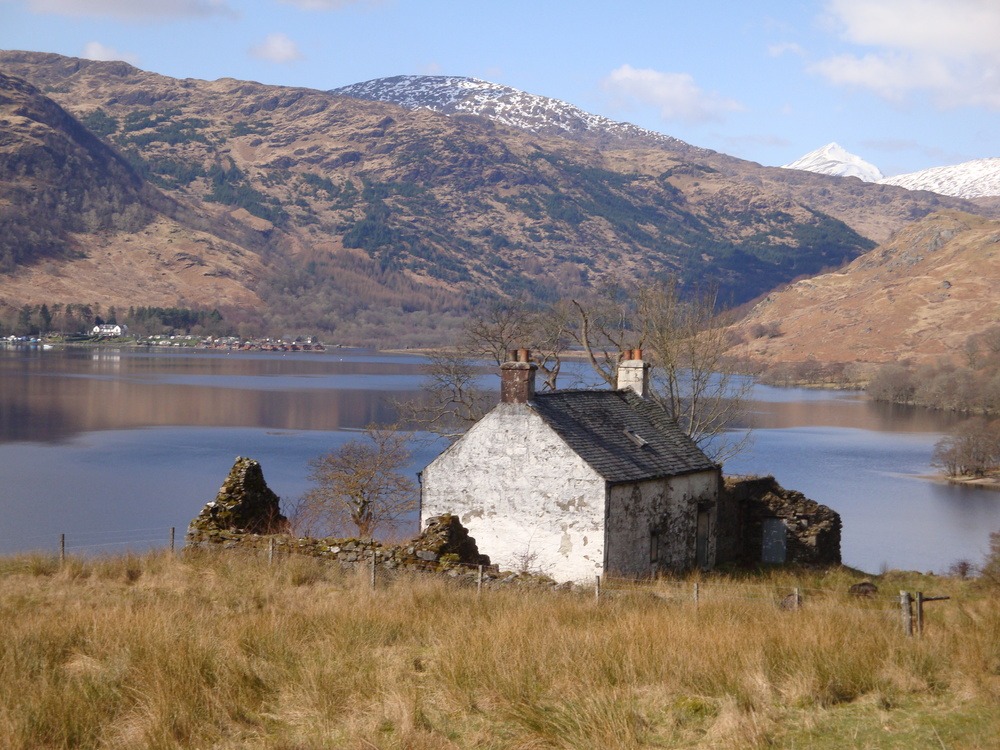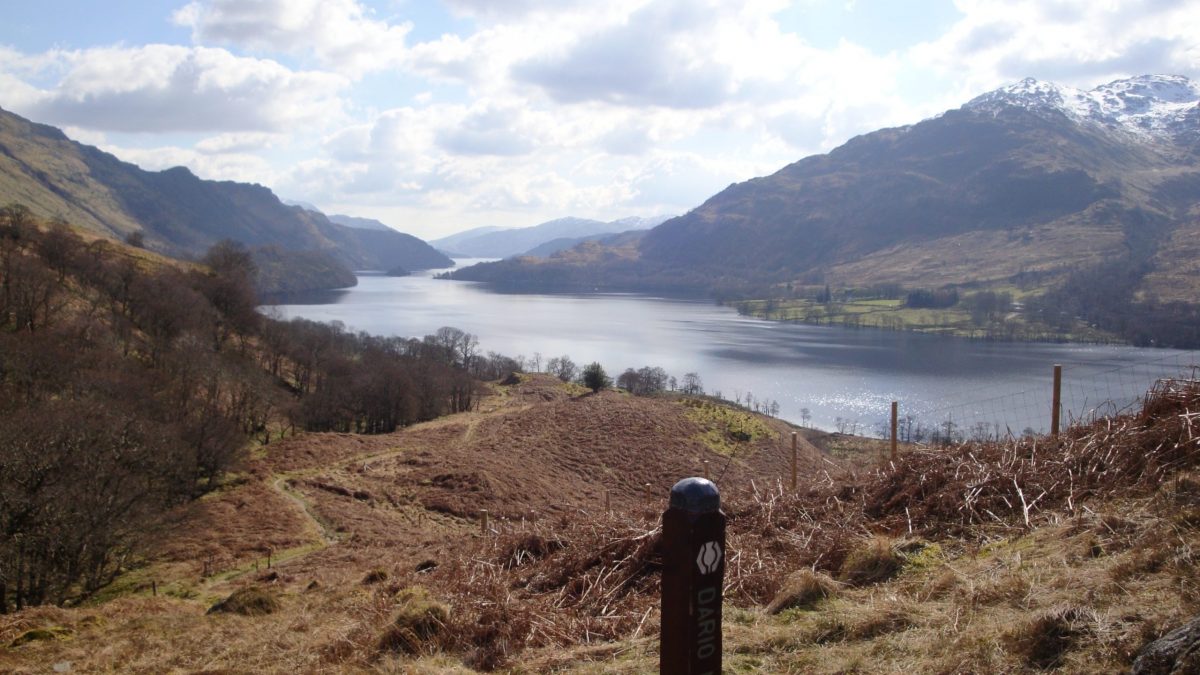As I taper into my 2nd attempt at the Hoka Highland Fling I find myself in an odd place both mentally and physically. To be fair a lot of this will be the effects of the taper: the whole idle body and idle mind just finding things to fixate on and worry about. A short easy run suddenly becomes very hard and niggle laden, your brain starts to dwell on the memories of last year’s fairly disastrous run, and the recent unexpectedly hard training runs on the route. How do you stem those negative thoughts and remain positive and dismiss the self-fulfilling disaster prophesy?
You reflect on previous experience, lessons learned, and take courage from previous achievement.
I remember from last year reaching the start line feeling well trained but nervous about challenge of running my longest and hardest race to date, but as the day proved I was under prepared mentally. As I have said before, it was not one of my finer moments: I completed it, but that is about the best you can say. It did act as a wake-up call to me though, and I learnt from my mistakes and I believe it was one of the key milestones that got me to Antarctica and enabled me to do as well as I did.
This year is different: of course it would be. I feel that I am coming to this one a bit under trained physically, but stronger mentally. So much has happened and changed in the last year, and trying to assess where that places me is interesting.
Recently, I completed the D33 and took 45 minutes off my time from last year. As with this, I was nervous, and believed that I was a little under-trained as I toed the start line. I did and still do not know where that performance came from; although I got and get quizzical looks from people when I say that. It as if they are saying,
‘Doh! What do you mean? You just ran a gazillion miles in the Antarctic, so of course you are going to be faster’.
Whilst there is a very valid point there, I think that there is more to it. There is no room for resting on one’s laurels, of complacency; so much is about preparation; about attaining, maintaining and improving fitness and strength. And, you must always, always respect the distance.
Where am I a week before the Fling? Pretty much where I am before any event. Nervous, restless, questioning my fitness and preparation, trying to deal with and bury the gremlins from last year. Time for logic and reason to kick in.
Since this time last year I have shed a further stone in weight so have less to lug along; I am undoubtedly fitter and stronger; and I have run further and harder. But, and there is a ‘but’; D33 which was 5 weeks ago has effectively been my last long run for the Fling. Whilst I finished reasonably fresh and appeared to recover quickly, I have been tired and sluggish, struggling when I have gone out to do longer runs.
The two longish runs on sections of the route were, frankly, demoralising. Beinglas to Inversnaid and back was tortuous and took forever reminding me of the horrors of last year. Beinglas to Tyndrum, was better but still a slog, and those odd feelings of complete loneliness and despair that I got over the last 2 miles last year (in spite of being with another runner at that stage) returned. These are the gremlins; my head playing tricks with me.

Ideally, I would have liked to have done a couple of long runs (15 – 20 miles) between the two events and I have not managed to do that. There has been plenty of shorter runs and plenty of cross training, with several good, long, hard spin bike sessions. This will have maintained my fitness. But it is those missing long runs that are giving me doubt and a touch of anxiety. If I look at it logically, even if I am a bit short of training runs, I know that my body will remember what it has to do and what is expected of it. Let’s bury those gremlins.
One of the key differences this year will be nutrition and fluids. Last year I did not eat or drink enough, I became badly dehydrated and my electrolytes were depleted and I stopped eating. This had a huge impact on my performance and ability to deal with the tricky and technical sections of the route. Reaching Beinglas only 12 minutes before the cut off, I refused to stop, grabbed a random selection of food and ploughed on. With hindsight, no the thing to do and the result was disastrous as walked most of the last 12 miles. The only thing that kept me going was sheer bloody mindedness.
In the Antarctic 100km I reached that familiar point at about 70km where I was getting so exhausted that I just could not eat, but it was so important to keep fuelling and keep my core warm. Each loop through the base camp the doctor started to force feed me gels 2 and 3 at a time, and checked that I had used the ones I was sent out with for the next loop. I hated it, but it was so necessary. It got me through.
I have had a year to crack the eating and drinking: I know how much I need to take and how frequently, and more importantly, I know how much my body and my performance depend upon it: a much better place to be.
To come back to that bloody mindedness: it is still there by the bucket load, but I am mentally tougher and stronger too. I know now what I am capable of. I have learned to control the fight or flight reaction that kicks in. I know that as exhaustion kicks in my mental faculties and my decision making process will be impaired and that it is important to listen to the voice of reason (my support). I have developed various coping mechanisms to pull me out of the dark places and push on through. These can be songs on my MP3 that were chosen by a friend or family member; a message of support; a happy memory; a repeated mantra; a swift telling off and telling myself to buck up and just get on with it; or reminding myself of why I am doing it and how people less fortunate than I will benefit from my fundraising.
So here I am week to go. The training is done and the kit and drop bag lists are done. I have been pouring over potential timings and playing with numbers, but the reality is that it will take as long as it takes. If I set an ambitious time and fall behind schedule it will mess with my head and set of a spiral of despair. Of course I want to be faster this year and I am probably capable of being faster, but the truth is that, actually, my aim this year is to finish it knowing that I have run a better and more controlled race regardless of time. Alasdair knows roughly when to expect me at the check points with a fairly large margin either side.
I know exactly how much fluid and food I need to be consuming and my drop bags will made up accordingly. Of course there will be far too much food in them, but that is more to provide alternatives as we have learned that I often reach a point where I just don’t know what I want to eat and that it is helpful to have a variety of options. There will be ‘real’ food and drinks, and there will be energy gels and drink. A combination of the two works well for me, and gels are a good fall back when all else fails.
In answer to my earlier question, where am I a week before the Fling? I am a more experienced and wiser runner. I am stronger. I am more prepared. I am still nervous, but that is healthy. It means I will not be over confident and I will be cautious and more likely to avoid silly mistakes. Am I under-trained? Well, that will be answered on the day.
Alasdair is better prepared too. Although he has supported me at pretty much all my events, the Fling last year was a big step up for him too; and a scary one by all accounts. As my non-running support team he too has learned a lot over the last year; and developed a thick skin. He knows that I will growl and grump and not do what I have to do, but he also knows that he has to persevere and make sure that I get what I need even if I don’t want it. He knows to check my bag, count the gels and snacks, check the fluid intake; make me change my top and socks; soak my buff if it is warm even if I say no; apply sunblock; advise me what I need to do. He knows not to take my word for it.
Alasdair has set my objectives for this year:
I must do as I am told
I must eat and drink
I must change my clothes
I must take time at the check points and use it to ensure that I am properly set for the next leg
I must be in a state where I know where I am going
I must be in a state that I know where the finish is
The journey home to Glasgow must not involve me lying on the back seat of the car whimpering
They are a good set of objectives which I should be able to achieve and which, sensibly, have no mention of time in them; but you know, if I get them right I will have a better race and I may just shave a bit of time off.





